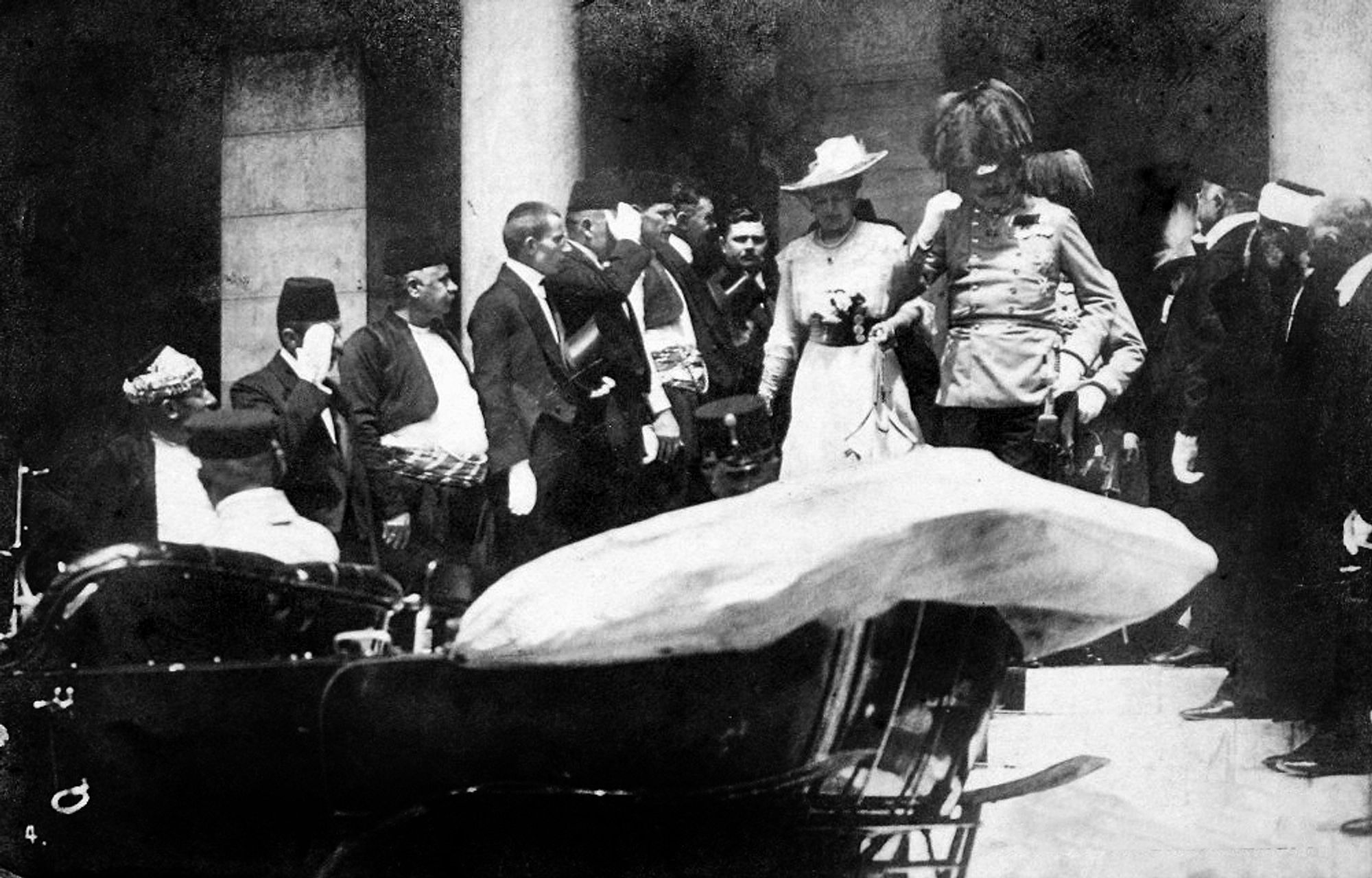It’s not the first time we go through this…
date
Dec 8, 2023
slug
feeling-already-lived-these-times
status
Published
tags
AI
capitalism
technology
WWI
populism
type
Post
ogImage
summary
Echoes of history reverberate the stress, disinformation, and the rise of populist leaders mirror pre-WWI tensions. Today's technological advancements and capitalism's unchecked pursuit unravel eerie parallels, urging introspection for a more equitable future.

"There is something wrong with the world today; there's something wrong with our eyes. 30 years ago, Aerosmith's "Living on the Edge" spoke about a pervasive, unsettling feeling that leaves an uncanny sensation of not belonging. The zeitgeist is something untouchable and inescapable, and it's still here. When wars start bursting out of the heads of leaders without connection to reality, you look around for answers, but there aren't any. It's the feeling mentioned by Steve Tyler, and it is still here, but roaring louder.
In the vast tapestry of history, threads of connection bind our present age to the tumultuous era preceding World War I. Stress, an unwavering companion in today's society, mirrors the tensions and societal upheavals of the early 20th century. Disinformation, amplified by our digital landscape, parallels the propaganda that shrouded the pre-WWI era, seeding mistrust. Today's deep ideological divisions resonate with the stark alliances and divisions that set the stage for the Great War. The rising inequality mirrors the disparities and fervor that fueled pre-WWI nationalism.
Populism's resurgence echoes through history, embodying figures like the omnipresent Donald Trump, Marine Le Pen, Geert Wilders, Nigel Farage, and Javier Milei, reminiscent of ancient leaders who rallied masses through nationalist fervor. Then and now, unresolved conflicts, power struggles, and geopolitical ambitions have burgeoned into wars.
Technological strides have deeply marked both periods. WWI witnessed innovations in warfare - machine guns, chemical weapons, and tanks - while today's terrain of cyber warfare and AI opens new conflict frontiers. However, this technological interconnectedness also brings vulnerabilities reminiscent of WWI's amplification through mutual dependencies. Technology in itself is not immoral. Its use, yes, can find itself within the realms of morality or not.
When the Bosnian nationalist Gavrilo Princip shot at Prince Franz Ferdinand and triggered the events leading to the worst war ever, the warring sides were eager to use their new toys: machine guns, chemical weapons, cannons with ranges as far as 70km, barbed wire, flamethrowers, land mines. It was the recipe for the wildest butchery the world has ever seen, and a great deal of it was because it was a Pandora’s box, that would culminate in the concentration camps that Eichmann and Heydrich proposed to their bosses to increase productivity in the killing task.
The aftermath of WWI marked a seismic shift - a transition from royal to capitalist dominance in global politics, echoing Marx's predictions of capitalism's insatiable pursuit of profit. This unchecked pursuit has perpetuated inequality, concentrated power, degraded the environment, and marginalized communities. Post-WWI, capitalism's ascent revealed its perils. Today, capitalism mirrors forecasts, breeding disparity, concentrating power, damaging the environment, and neglecting communities. These historical echoes impel a necessary introspection for a more equitable and sustainable future.
The recent OpenAI spat made clear that Silicon Valley billionaires are opening new Pandora’s Boxes because they can generate money as even they haven’t seen before. Their recklessness is being applauded. Google launched Bard and Gemini, probably hushed by Microsoft's leverage over Chat GPT. Nothing new here - money talks and has talked to hurry the implementation of every discovery ever. But as it happened with nuclear fission, the power of the speed unleashed by artificial intelligence is at the current levels. We are not talking anymore about sorting lines alphabetically, but about countless tasks that can have a dramatic impact on human life.
Technology, yesterday and today, is available for the highest bidder, and there is no bidder like the government. It’s literally impossible to predict what the rise to power of one or more of the previously mentioned populists will mean. If not even the brilliant minds of the entrepreneurs running against each other can forecast what the potential catastrophes coming out of the next version of their creations are, let alone men (mostly) that have absolutely no goals other than staying in power. We really should be concerned."